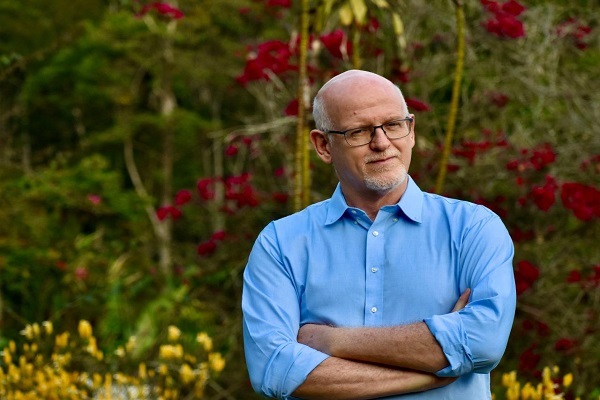To the vaccines have great historical importance for eradicating or decreasing the incidence of many serious diseases, such assmallpox, mumps, the flu, polio, rubella, measles It is tetanus. Considered a milestone in the history of human health, according to data from the World Health Organization (WHO), save the lives of 3 million people each year.
With the aim of reinforcing the importance of vaccines, Brazil celebrates in October 17th, the National Vaccination Day, a date that promotes the importance of immunization in controlling epidemics.
However, there is something worrying health agencies around the world. This is the low vaccination coverage that has been registered in Brazil, especially with regard to childhood vaccination.
The country, which was once a reference for the world in relation to vaccines, today runs the risk of once again having diseases considered eradicated.
read more: Measles outbreak in Brazil - information about this event
Drop in the number of vaccinated
The reality is that vaccination coverage has been falling in Brazil since 2015. Without reaching the goals of
vaccination, the country may again face outbreaks of diseases that had already been eliminated, such as polio.An alert came from the Pan American Health Organization (PAHO), which listed Brazil among the 12 countries with high risk of outbreak polio, also known as infantile paralysis, and that had its last case registered in Brazil in 1989.
As explained by the entity, vaccination coverage against it has dropped below 80% in most of South America, and polio can spread quickly among communities with insufficient vaccination coverage.

In the Brazilian issue, the problem is attested by the Information System of the National Immunization Program (SI-PNI), assembled by the information technology sector of the Unified Health System (DATASUS).
According to the data, in this year of 2022, from January to the second week of September, the general vaccination coverage index of the Brazilian population was 44.11%, very below the minimum rates recommended by the Ministry, which are between 90% and 95%, rates that were reached on average for the last time in 2015, when coverage was 95,07%. Last year, it was only 59.94%.
Check out: Vaccines every child should get
Negative factors for low vaccine adherence
Misinformation is undoubtedly the main reason for the high rates of unvaccinated people, but it is not the only cause. Among the factors, the pandemic in Covid-19 and the fake news spread by anti-vaccine movements that have grown a lot in recent years.
Brasil Escola talked to the pediatrician and sanitarian Daniel Becker about these issues. The doctor holds a master's degree in Public Health from Fiocruz, he was the first Brazilian doctor to work with Doctors without Fronteiras (1988), and one of the creators of the Family Health Strategy, the largest program of the Ministry of Health.
He directed the Health Promotion Center for 20 years, a reference in popular community health, and was program coordinator for the Dreyfus Health Foundation for Latin America and the Caribbean. In addition, he is a professor of Public Health at the Federal University of Rio de Janeiro (UFRJ), collaborator of UNICEF and WHO.
It is a pioneer of Comprehensive Pediatrics in Brazil - a practice that broadens the perspective and care to promote the full development and well-being of children and their families. Write on the networks in the profile @pediatriaintegralbr on Instagram, which has over 500,000 followers.
Daniel is categorical: if vaccines had not been developed, many of these diseases would still be among us and people would be more scared. Which proves that they were very effective and practically eradicated the diseases for which they were created.

Brazilian about the importance of vaccination / Credit: personal archive
For him, people got used to seeing these diseases and started to ignore their existence. Therefore, they do not realize the importance of vaccination and, consequently, there is a significant drop in people's motivation to go to the vaccination center and take their children to be vaccinated.
The pediatrician also points to the reduction of vaccination campaigns, as they were 20, 30 years ago, precisely to encourage people to go to the clinic to take their children. Daniel comments that these communication campaigns and strategy for vaccination were forgotten.
"The campaigns used to be true parties, we would go to the gas station to meet Zé Gotinha, there were balloons, games. People were proud to take their children for vaccinations and that is over", Daniel Becker
But for Becker, the most serious of all these factors is still the anti-vaccination campaign, which made vaccination the target of lies, criticism, absurdities, theories. In this scenario, he refers mainly to the covid-19 vaccines, but he is convinced that these actions also spilled over into vaccination as a whole.
"Today you have a population that distrusts vaccines, which no longer associates them with a positive and protective connotation, but rather as a threat. And the losses are obvious", Daniel Becker
The pediatrician exemplifies the vaccination coverage of meningitis C and polio in Rio de Janeiro. To get an idea, coverage of the Meningitis C vaccine in Rio in 2017 was above 90%, and is now in the range of 30%. Polio control in the same period reached 95%, and is currently less than 50% in the state.
"These diseases are already showing their claws, as the population is no longer protected and they spread more easily. The chances of reaching people and causing the disease, even seriously, are enormous", Daniel Becker
The doctor vents about the sadness of this reality, since they are diseases that were almost eradicated and that already have prevention, which is simple, easy, cheap. He also points out that no treatment is fully effective, be it vaccine, medication, etc., but that they are very close to 100%.
"Brazil invested a lot of energy, many years of work to build the best immunization program in the world, which vaccinates from a herdsman living isolated in the Pantanal or in the Pampas, to a riverside family in the Amazon, passing through the big capitals, outskirts, slums, villages, hinterland. It's impressive, SUS is a marvel. Imagine what it's like to take vaccination in remote places like these. It's a hell of a lot of work, technology and energy, and a lot of money too."
“And now we are there, living this sad reality, of a population that no longer trusts vaccination. The consequence is given: diseases will return, people will die, people will have sequelae. Measles, meningitis, polio can leave serious consequences. And it is this sadness that we are living”, Daniel Becker
More dissemination of national campaigns
The medical and scientific community defends, like Becker, national immunization campaigns with greater participation of scientific society institutions and teaching institutions at all levels, both public and private.
Do not stop now... There's more after the publicity ;)
In addition, the importance of sharing truthful information from reliable sources, such as the Brazilian Society of Immunization (SBIM) and, at the same time, combatingfake news. Daniel explains that there are those who believe in those who promise miraculous treatments, such as ozone and "immunity serum".
"It's full of pathetic lies that deceive people, because it's very easy to believe in a conspiracy thing, very well put together, using false characters. This was very strong with the covid-19 vaccine, and which ends up being repeated in the general distrust of all other vaccines", Daniel Becker
For health professionals and also pediatricians, a collective campaign is now needed to improve vaccination coverage.
“Right now it is not enough to take our children for vaccinations. It is important, fundamental and social, but it is not enough. Each of us needs to talk to everyone in our network. Be it with the doorman, the cashier at the supermarket, the pharmacy, the boss, the manager, the housekeeper, the subordinate, the aunts, grandparents, relatives, friends, everyone. I am inviting Brasil Escola readers to be part of this national effort, which is so important", Daniel Becker
Look here: Human health in Enem
Brazilian immunization program
Brazil has a National Immunization Program (PNI), created in 1973 and structured over the years, under the operation of the Unified Health System (SUS) and with an annual calendar, which guarantees immunization, throughout the country, against about 20 diseases through 19 vaccines, for different age groups.
There are still another 10 exclusive vaccines for groups with special clinical conditions, such as people with HIV. Some of these diseases were eradicated and others were controlled, serving as an example for many countries.

and guarantees immunization
On March 11, 2020, the WHO declared a pandemic of the new coronavirus. With that, a race against time began to find out how to deal with the disease and treat it. On December 8, 2020, the first dose of the vaccine against covid-19 was applied in the world.
Know about: Coronavirus, the SARS-CoV-2 family of viruses
Infectologist Vivian Furtado briefly listed, at the request of Brasil Escola, some favorable reasons for vaccination. check out:
- Prevents against a wide range of serious diseases, which can kill or leave serious consequences, such as deafness, blindness, limb paralysis, pneumonia and even death
- Has few side effects
- They are offered by the SUS
- Prevents hospitalizations
- Some cause "herd immunity", which is collective immunity
- They can provide increased life expectancy, combined with basic sanitation factors, such as hand washing and use of antibiotics
Many of us are alive today due to mass vaccination in the past. The reduction in vaccination coverage unnecessarily exposes the population to serious and fatal diseases that were previously under control.
See too: Why is vaccination important?
By Erica Caetano
Journalist


